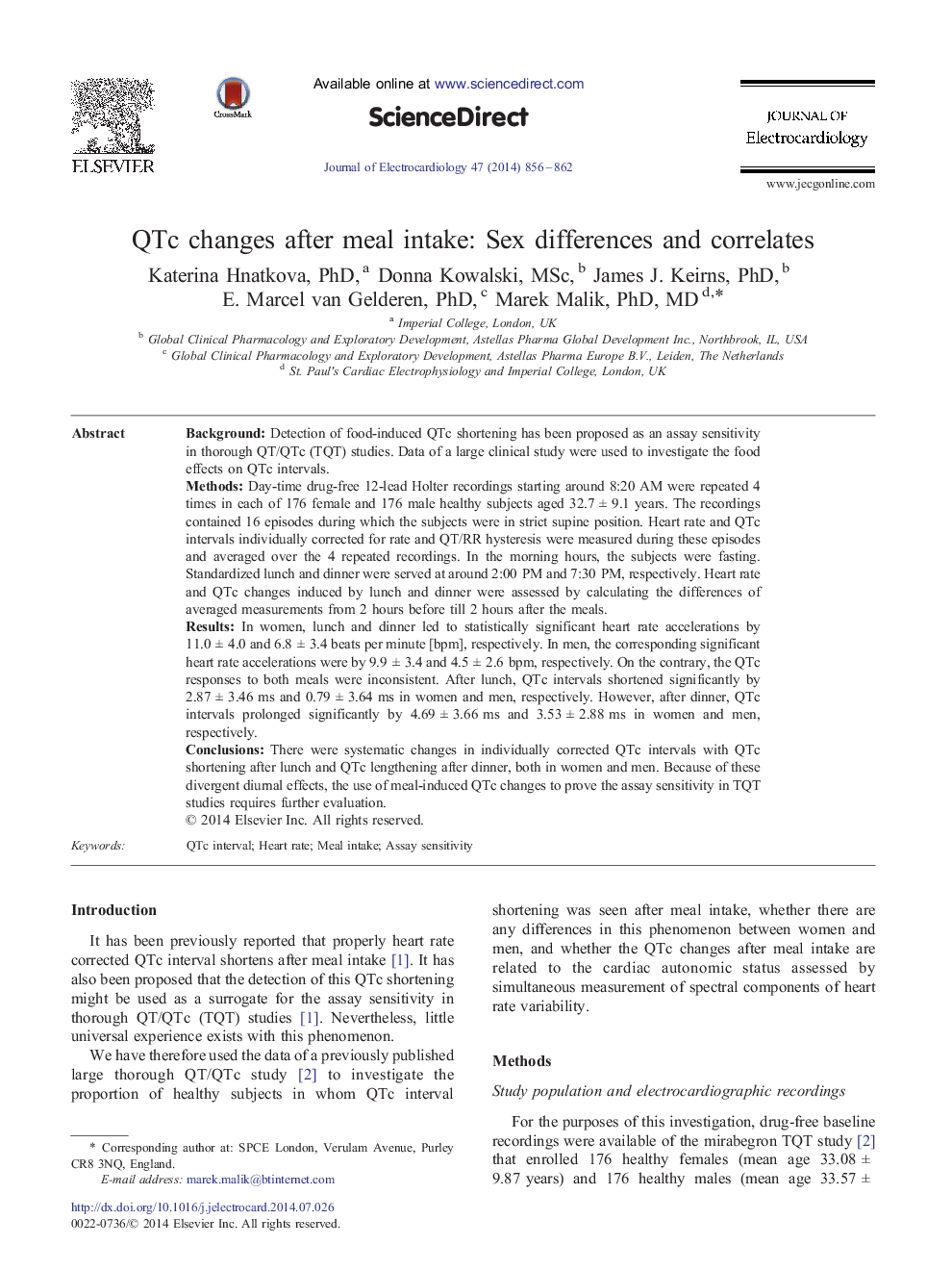| Article ID | Journal | Published Year | Pages | File Type |
|---|---|---|---|---|
| 5986608 | Journal of Electrocardiology | 2014 | 7 Pages |
BackgroundDetection of food-induced QTc shortening has been proposed as an assay sensitivity in thorough QT/QTc (TQT) studies. Data of a large clinical study were used to investigate the food effects on QTc intervals.MethodsDay-time drug-free 12-lead Holter recordings starting around 8:20 AM were repeated 4 times in each of 176 female and 176 male healthy subjects aged 32.7 ± 9.1 years. The recordings contained 16 episodes during which the subjects were in strict supine position. Heart rate and QTc intervals individually corrected for rate and QT/RR hysteresis were measured during these episodes and averaged over the 4 repeated recordings. In the morning hours, the subjects were fasting. Standardized lunch and dinner were served at around 2:00 PM and 7:30 PM, respectively. Heart rate and QTc changes induced by lunch and dinner were assessed by calculating the differences of averaged measurements from 2 hours before till 2 hours after the meals.ResultsIn women, lunch and dinner led to statistically significant heart rate accelerations by 11.0 ± 4.0 and 6.8 ± 3.4 beats per minute [bpm], respectively. In men, the corresponding significant heart rate accelerations were by 9.9 ± 3.4 and 4.5 ± 2.6 bpm, respectively. On the contrary, the QTc responses to both meals were inconsistent. After lunch, QTc intervals shortened significantly by 2.87 ± 3.46 ms and 0.79 ± 3.64 ms in women and men, respectively. However, after dinner, QTc intervals prolonged significantly by 4.69 ± 3.66 ms and 3.53 ± 2.88 ms in women and men, respectively.ConclusionsThere were systematic changes in individually corrected QTc intervals with QTc shortening after lunch and QTc lengthening after dinner, both in women and men. Because of these divergent diurnal effects, the use of meal-induced QTc changes to prove the assay sensitivity in TQT studies requires further evaluation.
